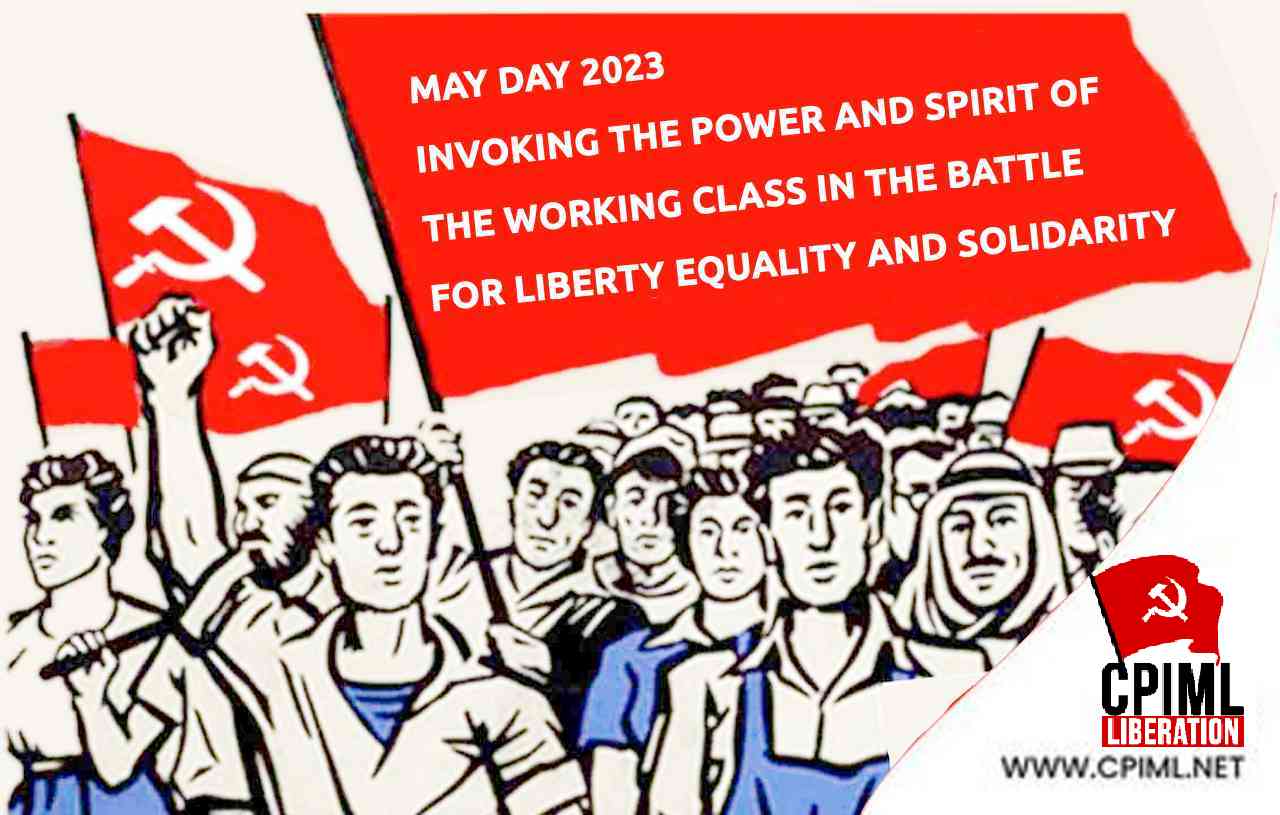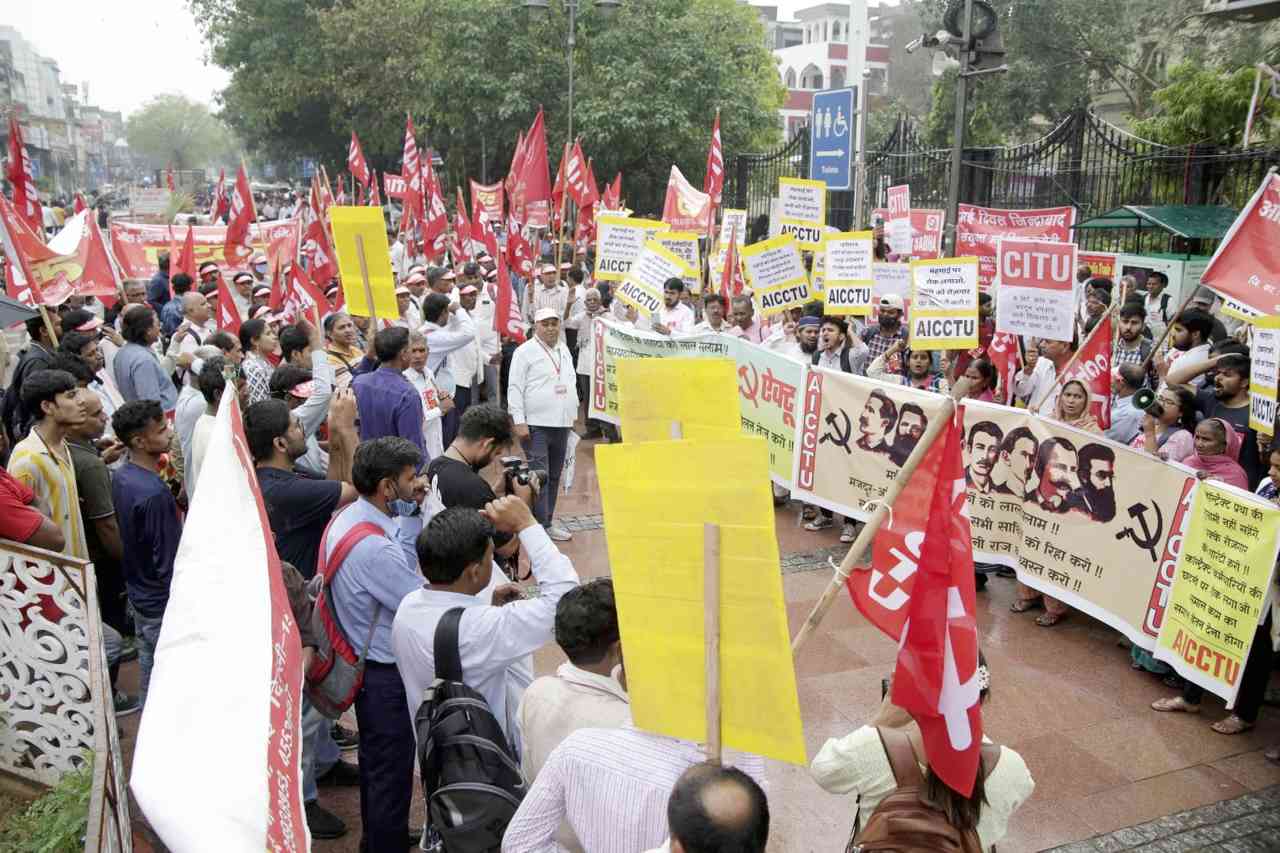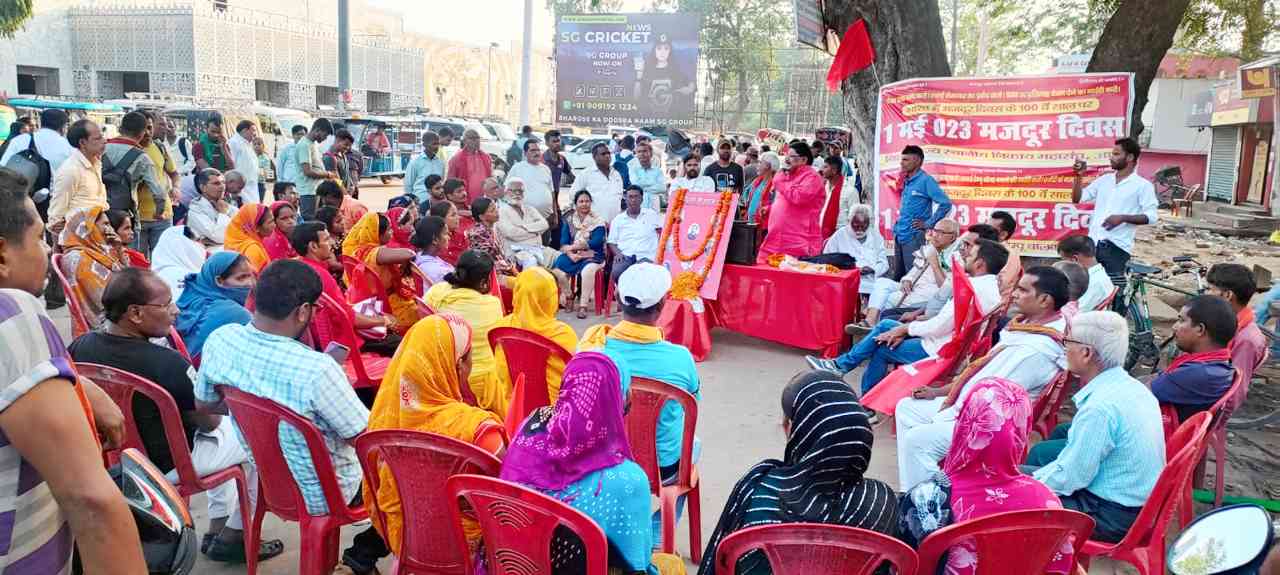May Day 2023: Invoking the Power and Spirit of the Working Class in the Battle for Liberty, Equality and Solidarity

May 1, 2023 marks the centenary of the first May Day celebration in India. Internationally, the observance of May Day had begun in 1886 with widespread protests and strike struggles demanding an eight-hour limit to the work day. Following the Haymarket massacre in Chicago on 4 May 1886, the movement gained further momentum. The execution of a group of key leaders of the May Day movement on 11 November, 1887 only strengthened the resolve of the working class on an international scale. By November 1917, czarist Russia witnessed the world's first working class revolution and the waves of working class awakening reached colonial India too. The All India Trade Union Congress was formed in 1920, and in 1923 the first celebration of May Day took place in Chennai under the leadership of M Singaravelar.
As we observe the centenary of May Day celebration in India, we must recognise and uphold the working class movement in India as an important and integral part of India's freedom struggle, spanning both the quest for social emancipation and political independence. The communist movement of course grew on the basis of working class assertion, but there were also many prominent leaders of the freedom movement outside of the communist camp who all contributed greatly to the advancement of the working class. Renowned Congress leaders like Lala Lajpat Rai, Chitta Ranjan Das, Jawaharlal Nehru and Subhas Chandra Bose, all served as Presidents of the AITUC at different junctures. Way back in the late 19th Century Narayan Lokhande, a close colleague of Jyotirao Phule, initiated the trade union movement in Maharashtra along with a two-pronged battle against caste oppression and communal venom. Decades later, Babasaheb Ambedkar formed a new party called the Independent Labour Party in 1936 and it worked unitedly with the Congress Socialist Party and the Communist Party to lead powerful struggles of tenant farmers as well as textile workers and secured major gains in terms of working class rights.
Today just as the other gains of the freedom movement - like the socialist secular democratic direction or Constitution? of the Indian Republic, the constitutional framework of rule of law, the social fabric based on communal harmony and cultural diversity, and citizens with rights - are threatened with fascist reversal, the gains made by the working class are also being systematically scuttled. The farmers have managed to get the three pro-corporate farm laws repealed, but the four labour codes replacing most of the erstwhile labour laws and rights are still hanging over the head of the Indian working class as the proverbial Sword of Damocles. Clearly, the working class has no choice but to fight hard as the farmers did and these struggles must go hand in hand with the larger battle for democracy just as they were part of the battle for freedom in the colonial era.
May Day has historically been about the unity and dignity of workers. That continues to be the basic challenge facing the overwhelming majority of India's workers. Job security, safe workplace, living wage including equal pay for equal work and social security have to be the four cornerstones for the dignity and unity of the working class. The majority of Indian workers are today denied all of these fundamentals. Hazardous jobs, unsafe workplaces, precarious living and less pay for more work define the conditions of work and living for millions of India's contract workers, informal sector workers, sanitation workers, scheme workers and delivery workers who run much of India's service sector and digital economy. To strengthen the bonds of class unity among India's diverse workers the working class movement must address these basic strands of insecurity, indignity and inequality.
Some other dividing walls need also to be pulled down to weld India's scattered and divided workers into an all-India class. Caste, which Ambedkar had identified as a system of 'division of labourers', continues to fragment the working class. A conscious and consistent anti-caste direction alone can help foster class unity and overcome caste-based oppression and exclusion. Patriarchy plays a similar role in relation to women workers, subjecting them more often than not to gender-based prejudices and adverse discrimination, if not outright exclusion and harassment. Working class unity must also overcome communal and linguistic divides and the conflict between local workers and outsiders. Caste, patriarchy, communalism, majoritarianism are not only forces which keep workers divided, they actively enable and deepen capitalist exploitation - so fighting for their abolition must be central to the working class movement.
The working class movement has been witness to the destructive blows that have been relentlessly inflicted by the Modi government and the Sangh brigade on India's economy, society and democratic polity in the nine years of the Modi regime. With only one more year to go before the decisive 2024 elections, May Day 2023 beckons the working class to join hands with every other fighting section of Indian society and diverse streams of protest in a concerted and determined bid to save India and Indian democracy from the ravages of fascism.


Charu Bhawan, U-90, Shakarpur, Delhi 110092
Phone: +91-11-42785864 | +91 9717274961 E-mail: info@cpiml.org

